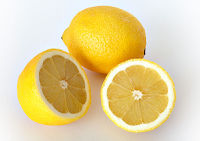Active ingredients
- Topic in Gardening courses
Active ingredients in herbs are substances in plants that have medicinal benefits. In herbal medicine the active ingredient is often unknown or requires other factors for a therapeutic effect.
Plants give us not only active ingredients, but also nutrients in the form of minerals, vitamins and other substances. See Nutrients in foods.
Alkaloids
- Main article: Alkaloids
Alkaloids are a group of naturally occurring chemical compounds that contain mostly basic nitrogen atoms.
Anthraquinone
- Main article: Anthraquinone
Anthraquinone is a building block of many dyes and is used in bleaching pulp for papermaking. Anthraquinones act to stimulate muscular contraction of the large intestine and therefore have a laxative effect.
Flavonoid
- Main article: Flavonoid
Flavonoids are the most important plant pigments for yellow or orange colors in herbs. Many animals, and also humans, ingest significant quantities in their diet. Many flavonoids have a diuretic action, others are antiseptic.
Mucilage
- Main article: Mucilage
Mucilage is a sweet, gel-like substance produced by most plants and some microorganisms. It has the tendency to draw water to it - so that when water is added it swells to form a viscous fluid.
Saponin
- Main article: Saponin
Saponins are found in many plants. Saponins are glycosides. Like soap they lather when they are mixed with water. Soapwort has a high saponin content and can be used to make natural soap. Saponins have an expectorant effect on the body (bring up mucus from the lungs), are diuretic (elevate the rate of urination), and are said to be beneficial for the circulatory system.
Tannin
- Main article: Tannin
Tannins are compound bio-molecules that are found in species throughout the plant kingdom, for example in tea, in wine and tree bark, generally in leaf, bud, seed, root, and stem tissues. Tannins act as an astringent (tends to shrink or constrict body tissues).
Essential oil
- Main article: Essential oil
Also called: Volatile oils, ethereal oils, aetherolea.
They give the aroma and flavor to herbs that we use in foods. An oil is "essential" in the sense that it carries a distinctive scent, or essence, of the plant. Essential oils do not form a distinctive category for any medical, pharmacological, or culinary purpose.
External links
- Active ingredients in herbs Herb Health Guide
- Active ingredient Wikipedia
Videos
- Difference Between Herbs & Drugs Some plants contain relatively more nutrients and other plants more active ingredients.

